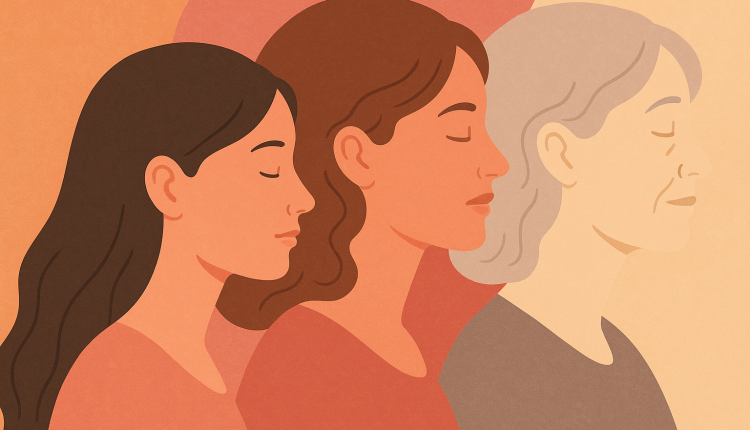Women face unique mental health challenges shaped by biology, life stages, and societal pressures. From teenage years to menopause, understanding these influences—and managing them with care—can empower women to maintain emotional balance and resilience.
1. Biological Rhythms and Emotional Health
Women are more likely than men to experience anxiety and depression—about twice as often—driven by hormonal changes during menstrual cycles, pregnancy, and menopause. Conditions like PMS, PMDD, and perimenopausal mood swings can cause serious emotional distress: irritability, sadness, and disrupted cognition.
What helps?
- Track symptoms to identify patterns.
- Use stress-reduction techniques such as mindfulness, yoga, or breathing exercises.
- Consult a doctor if PMS or PMDD severely impacts your daily life.
2. Reproductive Transitions: Pregnancy & Postpartum
Pregnancy and childbirth are major mental health risk periods. Up to 20% of new mothers experience postpartum depression, often overlooked during early child-rearing.
Signs to watch:
- Persistent sadness or disinterest in the baby.
- Anxiety, insomnia, exhaustion, or irritability.
What helps?
- Seek early support—talk therapy, peer groups, or medical care.
- Prioritize rest, nutrition, and community support.
- Fiber-rich foods may help both digestion and mental health during and after pregnancy.
3. Midlife Shifts: Perimenopause & Menopause
Hormonal fluctuations around menopause affect both body and mind. Women often report mood swings, anxiety, poor sleep, and fatigue . Alarmingly, diet-focused messages can worsen body image and trigger disordered eating.
What helps?
- Think health, not weight: favor balanced nutrition, exercise, and stress reduction.
- Consider treatments like Hormone Replacement Therapy (HRT) with professional guidance.
- Embrace self-compassion and reject societal pressure to “bounce back.”
4. Social Stressors & Life Demands
Women often juggle caregiving, work, and societal expectations. These stressors contribute to anxiety, burnout, and social isolation.
What helps?
- Set boundaries on commitments and social media time .
- Carve out weekly “me time” for hobbies, rest, or mindful breaks.
- Cultivate supportive networks—journal family feel supported, not pressured.
5. Physical Illness and Chronic Conditions
Biological factors place women at greater risk for conditions like autoimmune diseases, cardiovascular disease, and anemia—all with mental health implications.
What helps?
- Engage in regular physical activity—even short walks boost mood and energy.
- Prioritize regular check-ups and lab tests (e.g., iron, thyroid, bone density).
- Work with healthcare providers to address both physical and emotional wellness.
6. Underdiagnosis & Gender Bias
Women’s pain or emotional distress is frequently dismissed or misdiagnosed . Conditions like endometriosis can take over a decade to diagnose, leaving women underserved.
What helps?
- Track symptoms and raise them consistently with doctors.
- Seek second opinions if concerns are ignored.
- Advocate for yourself—current research encourages more female-centered medical care.
7. Simple Daily Practices for Mental Well-Being
Research-backed habits can buffer stress and enhance mood:
| Daily Habit | How it Helps |
|---|---|
| Balanced diet + hydration | Supports brain function and mood stability |
| Regular exercise | Releases mood-boosting endorphins, even a 10-minute walk helps |
| Quality sleep | Reduces anxiety and sharpens thinking—aim for consistent routines |
| Mindfulness or meditation | Calms stress, builds emotional resilience |
| Strong relationships | Emotional support enhances self-esteem and reduces isolation |
Final Thoughts
Women’s mental health isn’t just a personal journey—it reflects biological realities, societal dynamics, and systemic barriers. By acknowledging these uniquely female challenges and adopting compassionate, evidence-based practices, women can nurture their mental well-being at every stage of life. Prioritize small, sustainable habits, seek professional help when needed, and remember: your emotional health is essential, valid, and worth protecting.


